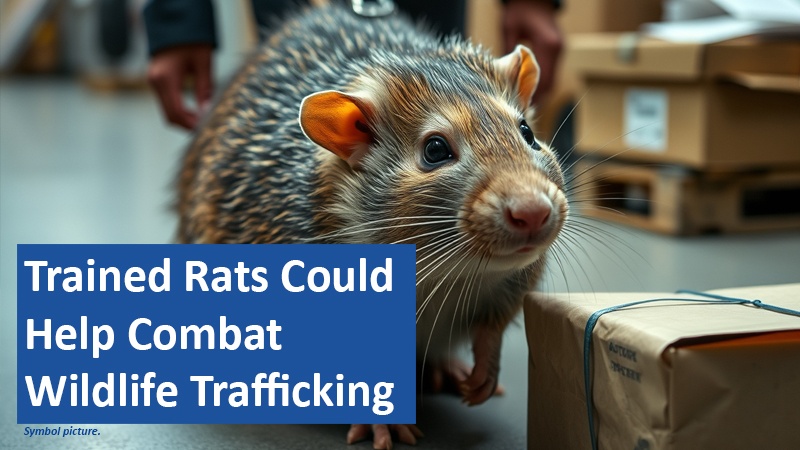
Illegal wildlife trade is one of the world’s most profitable black-market industries. Now, an unconventional method may help curb smuggling: African giant pouched rats are being trained to detect banned products such as ivory, pangolin scales, and rare hardwoods. With their highly developed sense of smell and low maintenance costs, these rodents could play a key role in combating wildlife trafficking. A recent study has shown promising results for their use at airports and border checkpoints.
Now exclusively try Amazon Prime and Prime Video free for 30 days!
A New Breed of Detection Experts
Authorities traditionally rely on trained sniffer dogs and X-ray scanners to uncover smuggled wildlife products. However, these methods can be expensive, time-consuming, and sometimes ineffective, especially when contraband is concealed within legal shipments. African giant pouched rats (Cricetomys ansorgei) could provide a cost-effective and highly accurate alternative.
Scientists at the APOPO Research and Training Center in Tanzania have successfully trained these rodents to identify specific scents associated with illegal wildlife trade. Their small size and agility allow them to navigate tight spaces in cargo areas and storage facilities where traditional detection methods may struggle. Additionally, unlike dogs, they can be easily transferred between handlers, increasing their adaptability in different environments.
Specialized Training for Wildlife Detection
In a recent study, eleven rats underwent intensive training using positive reinforcement. They were taught to recognize the scents of ivory, rhino horn, and protected hardwoods by pausing over samples for a specific duration. With repeated training sessions, the rodents achieved a high level of accuracy in distinguishing between legal and illegal goods.
One of the most impressive findings was the rats’ ability to detect contraband hidden among densely packed shipments. Their small size enabled them to access areas that are difficult for dogs to reach, giving them a unique advantage in cargo inspections. In some cases, they even outperformed trained sniffer dogs in confined spaces.
Deployment at Airports and Borders
The study suggests that these trained rats could be effectively used at airports, seaports, and border crossings to enhance wildlife crime detection. Compared to dogs, they are cheaper to train, have longer lifespans, and are more resilient to extreme temperatures and humidity.
In regions heavily impacted by wildlife trafficking, such as Africa and Southeast Asia, these rodents could provide a valuable tool for authorities. If implemented on a large scale, their use could disrupt trafficking networks and make it significantly harder for criminals to smuggle illegal goods undetected.
A Novel Approach to Fighting Wildlife Crime
Tackling illegal wildlife trade requires innovative solutions. The deployment of trained rats could offer a cost-effective and efficient way to detect smuggled goods early. Further studies will now assess how these rodents perform in real-world operations.
The use of African giant pouched rats for detecting illegal wildlife products presents a promising, cost-effective alternative to traditional methods. Their keen sense of smell, adaptability, and ability to access confined spaces could revolutionize wildlife trafficking prevention. If further field tests confirm their effectiveness, these trained rodents may become a vital tool in global conservation efforts.
Could these highly trained rats become a key asset in monitoring wildlife trafficking? What other areas might benefit from their unique abilities?
Based on content from www.dailygalaxy.com and own research.